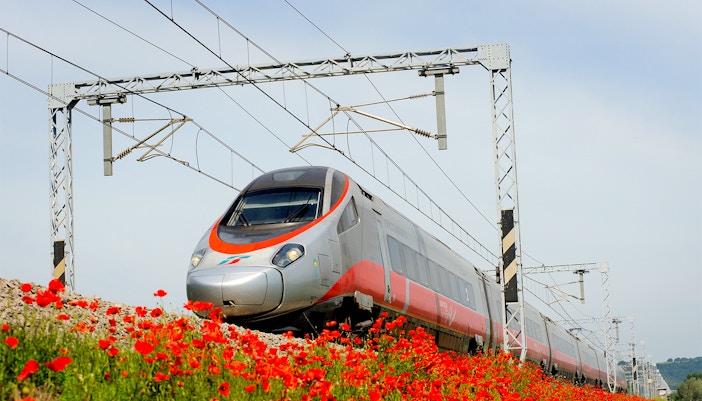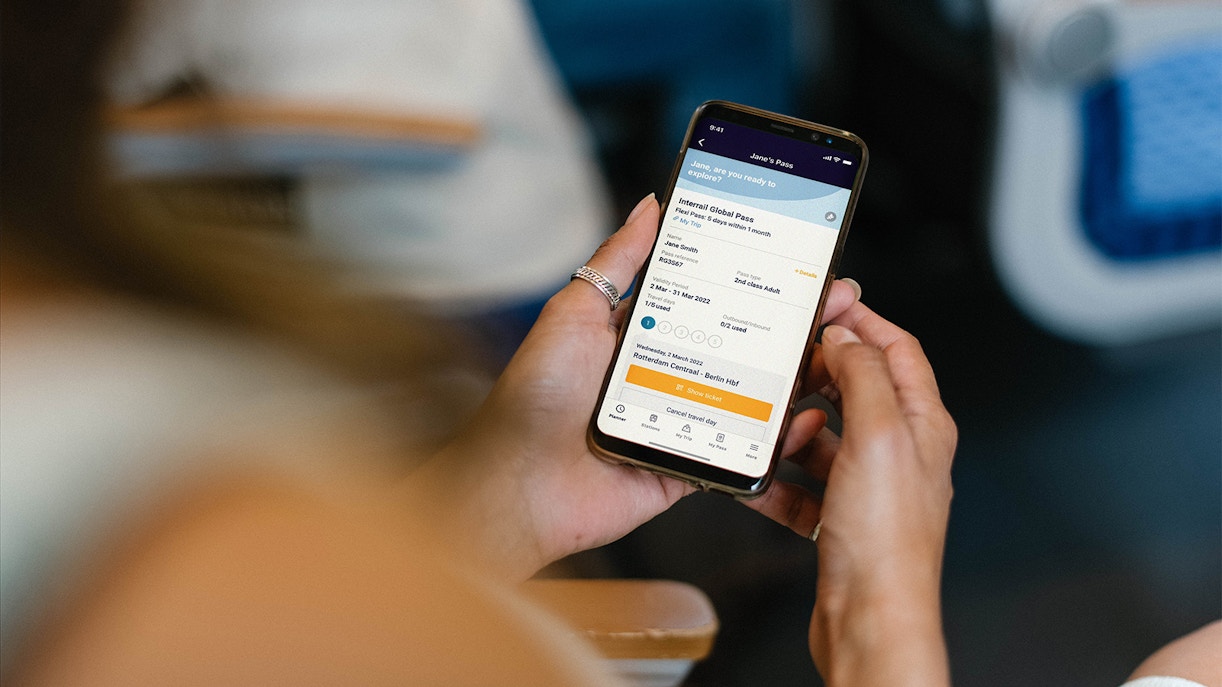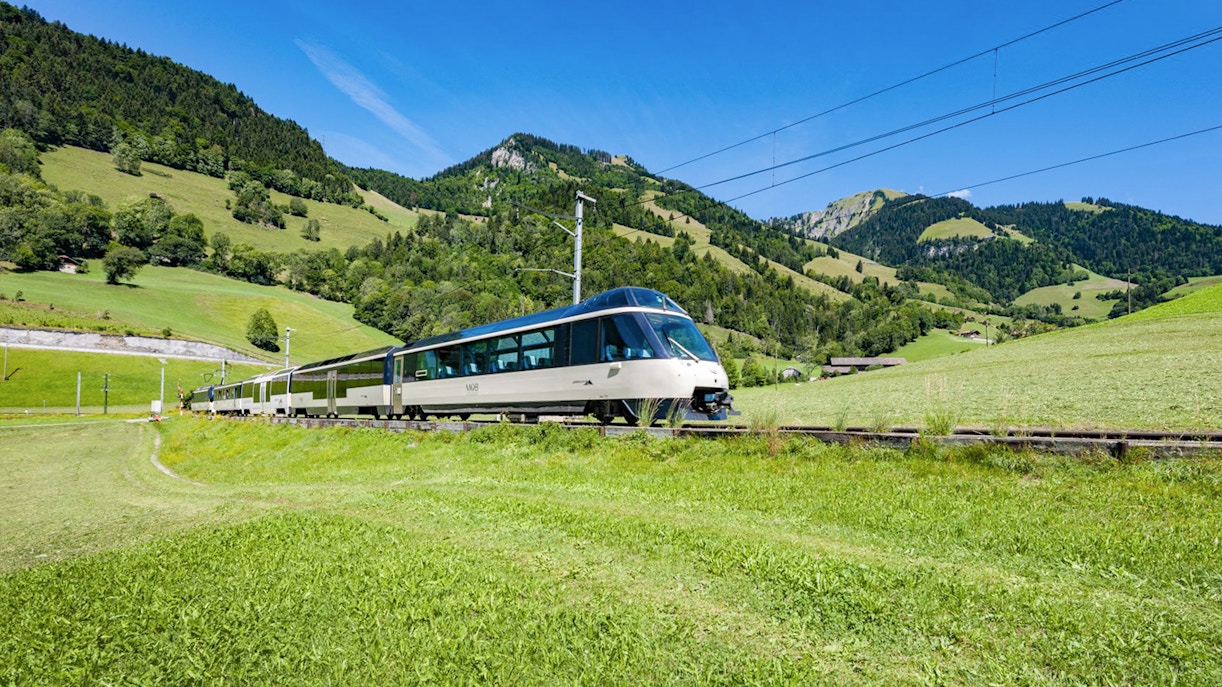Interrail Seat Reservations: Everything You Need to Know
Types of seat reservations with Interrail Pass

Mandatory reservation
High-speed trains, overnight trains, and train connections in Spain, Italy, and France almost always necessitate a seat reservation, without which you might not be able to get on board.

Optional reservation
Most European trains including regional trains permit optional reservations. You can get an assured seat on them if you want to. Or, you can choose to just board and grab an available seat.

No reservation
Local, regional, and suburban trains connecting various European cities and smaller towns mostly do not ask for reservations. They are quite frequent and hence, less crowded.
Things to know before booking seats with Interrail Pass
Before deciding whether to secure train seats, it's essential to consider factors such as time constraints, budget, and the prevailing travel season.

- Travel season: During peak tourist seasons in Europe, we recommend booking train seats well in advance to cope with potential crowding and sold-out trains.
- Travel preference: If you anticipate fatigue or simply desire a guaranteed seat, make a reservation. If you're adventurous and don't mind standing, non-mandatory trains do not require a reservation.
- Age of travelers: When traveling with toddlers or elderly individuals, reserving seats is advisable to avoid unnecessary stress associated with unsecured seating.
- Journey duration: For longer trips, prioritize comfort by reserving seats in advance.
- Time & budget considerations: If time is of the essence, opt for high-speed trains that often mandate seat reservations. For those on a budget, slower trains are more cost-effective as they typically do not require reservations.
- Number of travelers: For large groups, consider booking seats as everyone can stay together and enjoy the journey.
How to reserve seats with Interrail Pass?
You can reserve a seat with the Interrail Pass through any of the following means:
Interrail reservation website
Utilize the Interrail reservation website to secure seats for most European train journeys.
Railway carriers' websites
Visit the official websites of railway companies such as ÖBB (Austrian Railways), Westbahn (Private Railway), ČD (Czech Railways), DB (German Railways), and others to make Interrail seat reservations.
Contact booking centers by phone/email
In countries like France, Germany, Italy, and more, you can reserve seats by contacting the railway carrier's booking centers by phone. Email the booking centers to make train seat reservations in Estonia.
Train stations
Access Interrail seat reservation services at local train stations in all 33 Interrail countries. Note that in certain countries like Latvia, Lithuania, Portugal, Serbia, Turkey, and others, reservations can only be made at local stations.
Seat reservation tips for Interrail Pass holders

- Booking availability: Generally, day trains become available for booking three months before departure, while night trains can be booked up to six months in advance.
- Popular trains: Be mindful of popular routes, such as the TGV trains connecting Italy and France, as they experience high demand. Seats on these trains tend to sell out swiftly during peak seasons, so we strongly recommend securing your reservations early.
- High tourist season: If you plan to travel during the peak tourist season from April to September, it is advisable to reserve your seats well in advance, as seats tend to sell out and Pass holders have a limited number of seats set aside.

One of the best features of an Interrail Pass is the flexibility it accords to travel plans. While seat reservations enhance comfort, prices can be steep. They also tend to take away some of its flexibility. However, it's entirely possible to explore Europe without seat bookings. Here are a few travel hacks to retain the Pass's flexibility:
- Opt for Local/Regional trains: Choose slower but frequent local or regional trains for city-to-city travel. These typically don't require reservations, making them a cost-effective option, especially if time isn't a critical factor.
- Avoid peak season travel: Plan your trip during off-season periods when trains are less crowded, increasing your chances of finding available seats without reservations.
- Utilize the Rail Planner App: Streamline your search for reservation-free trains using the Rail Planner App. Simply tick the 'No reservation needed' box to filter out options that require reservations, ensuring a more budget-friendly journey.

- Reservation policy changes: Stay vigilant during high tourist seasons, as some railway companies may shift optional reservations to mandatory ones. Verify the reservation requirements for your chosen train before embarking on your journey.
- Interrail Pass activation: Reservation-making doesn't require pass activation. Plan ahead and secure your seats without the need to activate your pass.
- Mandatory reservations: Discovering which trains necessitate Interrail seat reservations is crucial. With a mobile Interrail Pass, the Rail Planner App becomes your ally, indicating whether your chosen train requires a reservation. Additionally, you can access train schedules and reservation details online.
- Ticket processing time: Seat reservation tickets in certain countries are E-tickets and process swiftly, while others may only offer paper tickets that require mailing. Allocate sufficient time when reserving seats to ensure timely receipt of your tickets.
Frequently asked questions
Most European trains work on a first-come, first-served basis, meaning you can take a seat if available. Interrail seat reservations, however, ensure that you get a seat allotted just for you when you travel with an Interrail Pass.
No, seat reservations are not included in your Interrail Pass. They need to be purchased separately at a small fee. However, unless seat reservations are mandatory on a particular train, you can board and take a seat that’s available with an Interrail Pass.
Seat reservation prices depend on the country and type of train. Domestic (high-speed) trains can cost about €10, international high-speed trains about €15, and international night trains about €20. Kindly note that these are average rates subject to change.
Most trains do not require prior reservations and can be boarded with just an Interrail Pass. However, you can choose to make reservations on these trains if you want to. However, some trains require mandatory seat reservations, especially high-speed and overnight trains.
You can reserve seats on the Interrail reservations website, railway carriers' websites, at the local train stations in the country of travel, or by booking or emailing the ticket booking centers of the country of travel.
No, you needn’t activate your Interrail Pass to reserve seats, which means that you can book seats much in advance. Read more about Interrail Pass usage and activation.
We recommend booking seats as soon as they are available, which is 3 to 6 months before departure. This is especially important when traveling during the busy tourist season. A limited number of seats are set aside for Interrail Passholders, so grab them early for a smooth ride.
Most high-speed, and overnight trains require seat reservations. You can find reservation requirements on the Rail Planner app. While browsing trains, there will be an indication if reservations are required or not. You can also check train reservation policies online.
Opting for slower local and regional trains over high-speed trains can help as they do not usually require a reservation. You can also choose to travel during the off-season to avoid crowds and get seats easily. Day trains can also be opted for instead of overnight trains, as the latter almost always mandate reservations.
If reservation is not mandatory on the train you have boarded, you can easily take any available seat. But if the train necessitates compulsory reservation, you will be asked to deboard or may even be fined by ticket inspectors.
